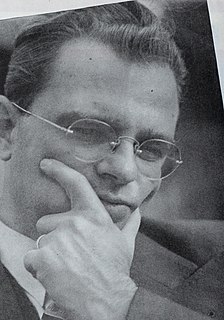A Quote by Joshua L. Liebman
Tolerance is the positive and cordial effort to understand another's beliefs, practices, and habits without necessarily sharing or accepting them.
Related Quotes
Facts do not find their way into the world in which our beliefs reside; they did not produce our beliefs, they do not destroy them; they may inflict on them the most constant refutations without weakening them, and an avalanche of afflictions or ailments succeeding one another without interruption in a family will not make it doubt the goodness of its God or the talent of its doctor.
Tolerance is a good cornerstone on which to build human relationships. When one views the slaughter and suffering caused by religious intolerance throughout all the history of man and into modern times, one can see that intolerance is a very nonsurvival activity. Religious tolerance does not mean one cannot express his own beliefs. It does mean that seeking to undermine or attack the religious faith and beliefs of another has always been a short road to trouble .
My methods produce lasting behavioral change without unpleasant consequences, because the change does not come from an effort of will. It comes from examining your deep-rooted beliefs of who you are and how the world functions. As you examine these beliefs and make changes in them, you literally become a different person.
It's so essential to happiness to speak your truth out loud - because this sharing of your core pain is what creates a necessary healing shift - from negative beliefs about the world - to positive beliefs - and frees you up to be able to fully view life with meaning, purpose and connection with others.
Creative power has to filter through our beliefs, attitudes, emotions, and habits. The more negative and constricted our beliefs and patterns are, the more they block the creative energy. Most people hope that by ignoring negativity, it will go away, but the reverse is actually true. Through recognizing, acknowledging, and experiencing it, the blocked energy can be released. You are then free to replace it with positive beliefs and attitudes.
A keystone habit leads to other positive habits and disciplines. These positive traits start a chain reaction that produces other positive outcomes. The presence of these important habits help you become more faithful in other areas of your life. On the other hand, the absence of these key disciplines can impact you negatively.




































